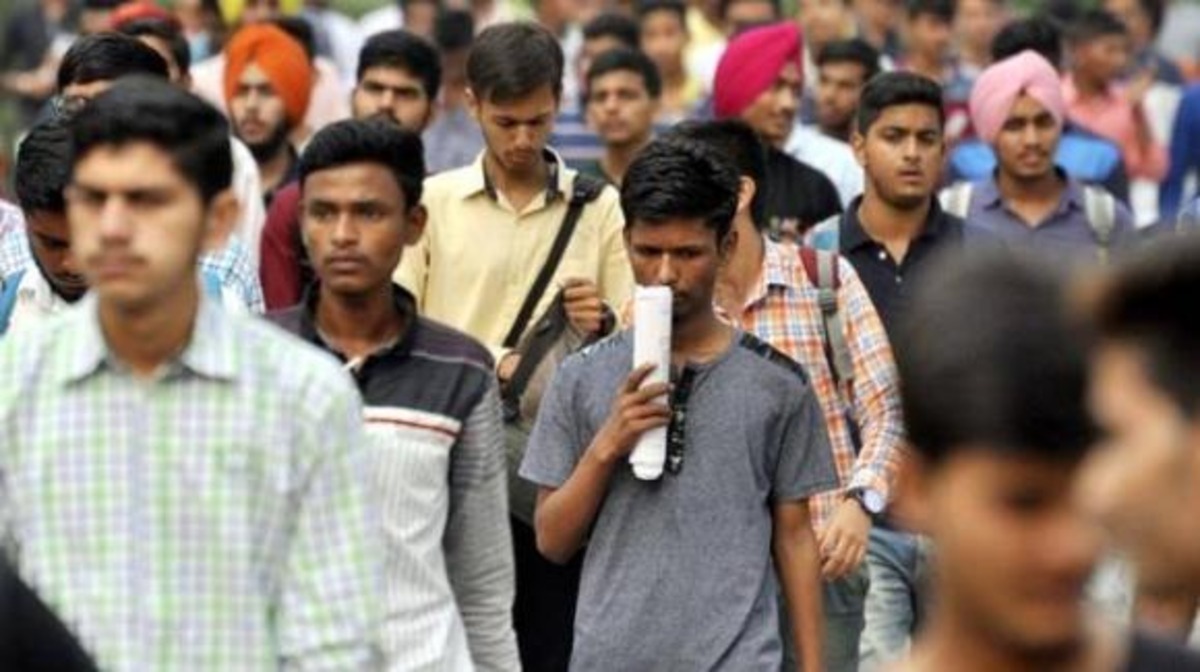It begins with hope. A father in Meerut sells his bike to afford coaching fees. A mother in Raipur skips her medicine to pay for her daughter’s coding class. A student in Ranchi memorizes current affairs at 5 a.m., headphones on, dreams blazing. Together, they form the backbone of India’s new middle class—ambitious, educated, and striving.
But that very hope is turning toxic. Across Tier-2 and Tier-3 India, young people are burning out. They are facing the emotional cost of chasing outdated definitions of success in a rapidly changing world.
The Crumbling Ladder of Merit
For decades, India’s middle class believed in a simple equation: education leads to success. In the past, this formula delivered results. Today, it no longer holds true. Government jobs are shrinking. The private sector offers little security. More than 65% of graduates are either underemployed or unemployed.
Yet, the coaching industry keeps booming. In places like Kota, Patna, and Bhubaneswar, coaching centers promise future glory. Students study for hours in packed rooms, isolated and stressed. Despite this, success remains elusive for most. Many students fall short not from a lack of effort, but because the system has too few seats at the table.
Performance Pressure and Family Expectations
Parents aren’t to blame. Most come from modest backgrounds. For them, education meant dignity. Naturally, they want better for their children. So, they push hard—often without realizing the cost.
But the world has changed. Unlike before, success today is fragmented. While one cousin clears a competitive exam, another earns online by creating content. Social media amplifies these comparisons. Everyone seems to be succeeding—except you.
Consequently, many youth feel caught between their reality and others’ highlight reels. The pressure to perform becomes a daily burden.
Mental Health: The Unseen Crisis
Mental health remains a silent emergency. In metros, therapy is gaining acceptance. But in Tier-2 cities, it’s still misunderstood. Depression is dismissed as moodiness. Anxiety is brushed off as “thinking too much.”
Still, the numbers don’t lie. Over 13,000 students died by suicide in 2023, with many cases emerging from smaller cities. These youth weren’t weak. They were overwhelmed, isolated, and unheard.
Many students preparing for UPSC or NEET wake before dawn, attend back-to-back classes, and sleep with guilt. If they fail, society offers no cushion. Parents question their effort. Friends move on. The coaching center shifts focus to new toppers.
Sadly, no one talks about the toll it takes.
Work Without Meaning
Even those who land jobs often find them unfulfilling. Many end up in roles that are repetitive and poorly paid. Tier-2 graduates might join backend teams or customer support. Others turn to gig work—delivering food, freelancing, or tutoring.
Initially, gig work seems flexible. However, it lacks stability and long-term growth. Moreover, many who try content creation or entrepreneurship soon realize how hard sustainability is in the digital economy.
Over time, frustration builds. Burnout sets in. A job may offer money, but not purpose.
Systemic Failures
This crisis won’t be fixed with platitudes or pep talks. India needs real interventions.
To begin with, mental health services must expand beyond metros. Schools and colleges should provide access to trained counselors. Campaigns must normalize seeking help and destigmatize therapy.
Next, career guidance should begin early. Schools must help students explore diverse paths, not just medicine or engineering. Skill-based education should reflect today’s economy.
Additionally, job creation in smaller cities is essential. Industries need incentives to set up in Tier-2 towns. Youth shouldn’t have to leave their homes to find meaningful work.
Finally, we need a cultural reset. Families must learn to support children emotionally—not just academically. Society must stop treating failure as shame.
A New Definition of Success
India’s Tier-2 cities are full of talent. What they lack is an ecosystem that values emotional health as much as academic scores.
We must redefine success. It’s not just about clearing exams or earning in dollars. It’s also about purpose, stability, and mental peace.
The youth don’t want shortcuts. They want dignity. They want to build lives that matter—not just to LinkedIn but to themselves.
Let’s give them that chance.
By Shashi Singh

 Culture & Society2 months ago
Culture & Society2 months ago
 Culture & Society2 months ago
Culture & Society2 months ago
 Tech2 months ago
Tech2 months ago
 Opinion2 months ago
Opinion2 months ago
 Business2 months ago
Business2 months ago
 Culture & Society2 months ago
Culture & Society2 months ago
 Culture & Society2 months ago
Culture & Society2 months ago
 iNational Indic2 months ago
iNational Indic2 months ago
















